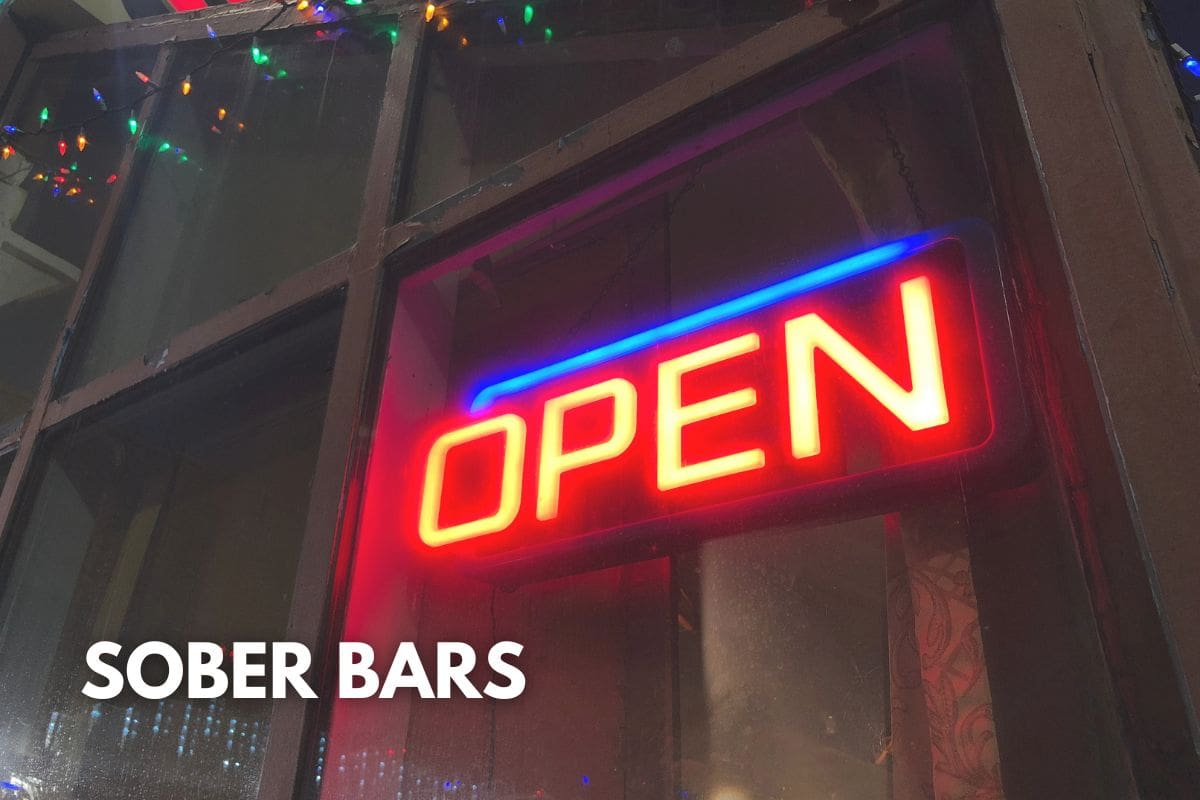Although a good chunk of the population enjoys hanging out surrounded by friends and alcohol, bars have never been for everyone. And when the COVID pandemic led millions of Americans to increase their alcohol consumption to cope with stress, many urgently needed alternatives, regardless of their history with alcohol. Sober bars are rising as a popular alternative.
In this article, we’ll explore what they are, why they’ve been so popular, and why they’re good for everyone.
What Are Sober Bars, And What Do They Offer?
Sober bars are just what they sound like: a bar that exclusively offers non-alcoholic beverages.
While they each have their vibe and personality, non-alcoholic bars try to offer a safe, welcoming space where people can socialize while remaining in complete control of their senses throughout the night.
Everyone is welcome: people struggling or recovering from alcohol, sober-curious people wanting to give alcohol-free nights out a try, people with beliefs prohibiting alcohol use, people who have never enjoyed alcohol, and everyone else in between.
Led by the pandemic’s effects on American drinking habits and many other factors, many people are now more conscious of the dangers of excessive drinking. Sober bars offer a place where getting intoxicated is not required to enjoy time with your friends.
But what exactly do you drink in sober bars? Mostly mocktails or zero-proof drinks.
Bartenders at these bars know dozens or even hundreds of colorful non-alcoholic shakes and mixes that will spice up your nights out without a hangover the following day, including:
- Shirley Temples, mojito mocktails, cream soda, dandelion and burdock, sarsaparilla, and Vimto
- Low-alcohol or alcohol-free beers
- Shakes made out of various herbs, fruits, and concoctions, such as fermented pineapple, kombucha, pear purée, pear shrub, rosemary, and more
- The bar’s very own original mocktails
Additionally, some sober bars offer hour-long tastings in which, for a set price, you can have as many non-alcoholic beverages as you want, similar to traditional wine tastings.
Why Have They Become So Popular So Quickly?
For many people, the popularity of sober bars is a case of history repeating itself, as they are far from a new trend.
Early sober bars, historically known as “temperance bars,” trace back to about 250 years ago in eighteenth-century London, a period of widespread and excessive alcohol consumption in the English capital. As a result, many people organized an abstinence movement which included establishing alcohol-free spaces such as Mr. Fitzpatrick’s Temperance Bar, which was founded in 1890 and is still open.
This long-standing tradition, combined with current factors, led to the rise of sober bars. Some of these factors include:
- According to the IWSR Drinks Market Analysis, global consumption of low and no-alcohol beer, wine, and spirits is growing two to three times faster than overall alcohol consumption.
- The U.S. is the second largest market for no and low-alcohol products in the world, according to the IWSR, a fertile market for sober bars to grow in.
- The growing preference of sober people or recovering alcoholics from drinking something non-alcoholic that isn’t juice or soda.
- More people are making more decisions driven by health and wellness.
- The novelty of trying colorful things doesn’t cause a hangover.
The Benefits Of Sober Bars
On top of providing sober people and recovering alcoholics a place to have fun without alcohol, sober bars offer several other benefits, such as:
- Having a safe environment to socialize
- Providing a place to escape from alcohol
- Helping recovering alcoholics develop the habit of having sober fun
- Providing opportunities to expand your social circle without the influence of alcohol
Initially, for those in early recovery, even sober bars can be triggering as cocktails and drinks look very much like the real deal.
For people recovering from alcohol abuse, however, it would be wise to consult with their therapist or addiction professional to discuss coping habits while staying at a sober bar and how to incorporate them into their support systems with the support of friends and family.
How To Stay Sober At Traditional Bars?
The rising popularity of sober bars may also lead some people recovering from alcoholism to reconsider traditional bars’ place in their lives. Assuming you have not eliminated them from your life, these are some of the strategies you can use to stay sober while visiting a traditional bar:
- Go with people you can trust: having people who care for your well-being will help you stay true to your sober goals.
- Go somewhere where food is excellent: having delicious food to look forward to will give you something else to focus on.
- Order non-alcoholic drinks: the variety may not be as great as in sober bars, but it might help get your mind off drinking.
- Go to a place that entertains: music or comedy can help you engage with something other than your drink.
- Drive yourself there: if you feel up to the challenge, you can drive yourself there, forcing you to stay sober on the way back. However, you may want to check with your addiction specialist before trying this.
Are Sober Bars Here To Stay?
Only time will tell whether the sober bars will sustain their popularity over time. But it appears that, at least for some people, they are here to stay. If you are one of them, whether recovering from alcohol or not, be sure to enjoy them to the fullest as a way to explore the fun in a sober environment.

































